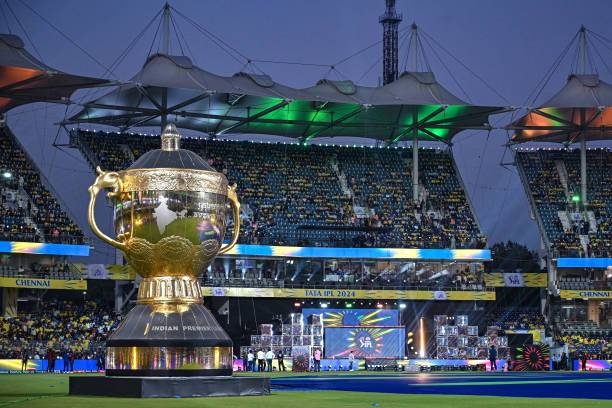IPL and Sports Broadcasting Rights: Negotiations and Market Dynamics
Apbook, Apbook: Securing broadcasting rights for major sporting events is a fiercely competitive and strategically intricate process. With the global audience for sports growing rapidly, broadcasters are willing to invest significant sums to secure exclusive rights to air these events. Broadcasters are not only vying against each other but also negotiating with sports leagues, teams, and event organizers in a complex ecosystem where financial, technological, and audience engagement factors come into play.
The negotiation process involves a delicate balance of financial considerations, audience reach, technological capabilities, and long-term strategic vision. Broadcasters need to demonstrate their ability to maximize viewership and engagement to justify the substantial investments required to secure these rights. At the same time, sports organizations are keen on striking deals that not only bring in revenue but also enhance the prestige and visibility of their events on a global scale.
Understanding the Role of Broadcasters in Sports Coverage
Broadcasters play a pivotal role in sports coverage by bringing live events to audiences around the world. Through their extensive network of channels and digital platforms, broadcasters have the ability to reach a wide range of viewers, from avid sports fans to casual observers. Their expertise in production, commentary, and analysis enhances the overall viewing experience and keeps audiences engaged throughout the event.
Furthermore, broadcasters secure the broadcasting rights for major sports events, allowing them exclusive access to live coverage and highlights. This gives them a competitive edge in the industry and provides a valuable service to sports fans who rely on their favorite channels to stay updated on the latest games and matches. By investing in high-quality production and cutting-edge technology, broadcasters are able to deliver top-notch coverage that captivates audiences and generates significant viewership.
Economic Factors Impacting Broadcasting Rights Deals
Securing broadcasting rights for major sporting events involves a complex interplay of economic factors that can significantly impact the deals agreed upon between sports leagues and broadcasters. One critical element is the size of the audience that a particular sport or event can attract. Higher viewership numbers typically translate to higher broadcasting rights fees as networks are willing to pay a premium to access a large and engaged audience.
Another key economic factor is the advertising revenue that broadcasters can generate from airing sporting events. Advertisers are often willing to pay more to reach the demographics that are drawn to sports programming, leading to increased competition among networks vying for the rights to broadcast popular games and tournaments. Ultimately, the potential for high advertising revenue plays a substantial role in determining the value of broadcasting rights for major sporting events.
• The size of the audience directly impacts broadcasting rights fees
• Higher viewership numbers lead to increased interest from networks
• Networks are willing to pay more for access to a large and engaged audience
• Advertising revenue is a key economic factor in broadcasting rights deals
• Advertisers pay more to reach sports demographics
• Increased competition among networks for popular games and tournaments
In conclusion, economic factors such as audience size and advertising revenue play a significant role in shaping broadcasting rights deals for major sporting events. Networks must carefully consider these factors when negotiating agreements with sports leagues in order to maximize their return on investment. As the landscape of media consumption continues to evolve, understanding and leveraging these economic considerations will be crucial for both broadcasters and sports organizations moving forward.
What factors influence the negotiation of sports broadcasting rights for major events?
Factors such as the popularity of the event, the number of competing broadcasters interested, the exclusivity of the rights, and the potential advertising revenue play a significant role in the negotiation process.
How do broadcasters contribute to sports coverage?
Broadcasters play a crucial role in bringing sports events to audiences by providing live coverage, expert commentary, analysis, and behind-the-scenes access. They also play a key role in promoting events and engaging viewers.
How do economic factors impact broadcasting rights deals?
Economic factors such as the size of the broadcasting market, the financial strength of the broadcasters, the level of competition in the industry, and the overall economic climate can all impact the value and terms of broadcasting rights deals for sports events.







